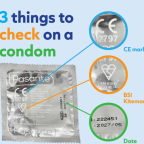Young Parents
If you think you may be pregnant, or even if you’re not sure, the Essex Sexual Health Service can offer you free and confidential pregnancy testing in clinic if you are over the age of 13.
If you find out you are pregnant, whether planned or unexpected, this can come with a with a lot of emotions. If you receive a positive pregnancy test in clinic, staff will be on hand to offer support and signpost you to all other free support available to you in Essex. They will also be able to inform you of all your options regarding your pregnancy, including termination options if this is something you are considering, which you can find more information on here.
If you decide to continue with your pregnancy there is lots of support available to you, to help make pregnancy, birth and young parenthood a little bit easier. Below is both Essex and nationwide support you can access for free no matter what you’re feeling or what you are going through.
Young Parents
If you think you may be pregnant, or even if you’re not sure, the Essex Sexual Health Service can offer you free and confidential pregnancy testing in clinic if you are over the age of 13.
If you find out you are pregnant, whether planned or unexpected, this can come with a with a lot of emotions. If you receive a positive pregnancy test in clinic, staff will be on hand to offer support and signpost you to all other free support available to you in Essex. They will also be able to inform you of all your options regarding your pregnancy, including termination options if this is something you are considering, which you can find more information on here.
If you decide to continue with your pregnancy there is lots of support available to you, to help make pregnancy, birth and young parenthood a little bit easier. Below is both Essex and nationwide support you can access for free no matter what you’re feeling or what you are going through.
Need to talk?
5 tips for new parents
- Talk to your health visitor about free baby groups. Baby groups are a great way to meet other parents, learn about parenting, and get support
- Try not to put pressure on yourself to know everything right away. Everyone learns at their own pace, and there’s no need to be an expert overnight
- Ask for help when you need it. Don’t be afraid to ask your family, friends, or a professional for help. There are many people who care about you and want to help you succeed as a parent
- Take time to rest when your baby is resting. It’s important to take care of yourself, both physically and mentally. Make sure you’re getting enough sleep, eating healthy foods, and exercising regularly
- Talk about how you’re feeling with our counsellors. If you’re feeling overwhelmed or stressed, talking to a counsellor can help you cope with your emotions and develop coping mechanisms
Starting back at school
Going back to school after having a baby can be a daunting task, but it’s definitely possible! Here are some tips to help you get started:
- Talk to your teachers and support workers. They can help you create a plan that works for you and your baby
- Make a list of your questions and concerns. This will help you remember everything you want to talk about and it’ll show your teachers and support workers that you’re serious about your education.
- Find out about childcare and financial support. There are many resources available to help you, so don’t be afraid to ask for help
- Set realistic goals. Don’t try to do too much at once. Start by setting small goals and gradually increase your workload as you get more comfortable
- Take breaks when your baby is sleeping, or ask someone else to watch your baby so you can have some time to yourself. It’s important to take time for yourself, even when you’re busy
- Be honest with your teachers and support workers. If you’re struggling, don’t be afraid to ask for help. They’re there to support you and they want to help you to succeed
- Young parents under the age of 20 can receive free funding to stay in education. For more details and information about how to apply for funding visit: C2L guide for 2023-2024
Remember, you’re not alone. Many young parents go back to school and there are resources available to help you. With a little planning and effort, you can do it!
Support in Essex
Essex Child and Family Wellbeing service support
Family hub:
The Essex Child and Family Wellbeing service has centres called family hubs. They can help you access a range of support including parenting classes.
Find your local family hub here.
Healthy Family Team:
The Healthy Family Team offer routine contacts to all families living in Essex within the first 3 years.
These are as follows:
Antenatal Assessment – Introduces families to the Healthy Family Team’s services from 28 weeks of pregnancy, offering guidance during this period. This appointment takes place in Family Hubs and Delivery Sites.
New Baby Review – A home visit for all newborn babies and their parents/carers, carried out when the baby is between 10 and 14 days old.
48-Hour Infant Feeding Call – A follow-up phone call to parents/carers approximately 48 hours after discharge with the baby, providing advice and support during the early days of feeding.
6 to 8 Week Review – A follow-up appointment in a Family Hub or Delivery Site to review the baby’s progress and discuss any concerns.
Under 1 Year Review – An assessment of a child’s growth and development, usually between 9 and 11 months of age. Parents/carers complete a questionnaire in advance, which helps identify families who may require additional advice and guidance. Where needed, a face-to-face meeting is arranged in a Family Hub or Delivery Site.
2 to 3 Year Review – An assessment of a child’s growth and development, usually between 30 and 36 months of age. Parents/carers complete a questionnaire in advance, followed by a face-to-face appointment in a Family Hub or Delivery Site to discuss the results.
HCRG also offer support for autism, children in care, therapy services in North Essex, child and family support, a range of support groups, and SEND and learning disability support.
For more information and support please visit their website.
Essex County Council Support
Personal advisers:
Your personal adviser, along with the family centre team can help you with the basics such as:
- how to change a nappy
- how to bath a baby
- when to seek medical advice
- how to register for a school place, a dentist or an optician
If you are not comfortable in groups, the personal adviser will set up 1 to 1 parenting support until you are.
Care leaver parent groups:
A safe and supportive space for care leavers with children to connect with others in a similar situation. Sessions are held in Witham and Colchester, with transport available to help attendees get there.
To book, email natalie.vince@essex.gov.uk or phone 07584262934.
Planning your own future, one of their care leavers shared this quote with us:
“You are still a person, not just a parent.”
With this in mind they want to help you plan for your future.
This support can include:
- Continuing your education
- Accessing training or employment
- Careers advice and guidance
- Transport
Parents 1st Support
Parents 1st support with the below:
- Peer Support
- Pregnancy Pals and Birth Buddies
- Antenatal sessions for mums
- Support for dads and non-birthing partners
- Group exercise sessions for mothers, fathers and babies in Essex
Peers to parent network:
Emotional highs and lows during pregnancy or within the first year of becoming a parent are natural and normal. However, at times the lows can feel overwhelming, confusing, or even frightening. This is more common than many realise and can affect mothers, fathers, and partners alike.
Peer support can take different forms, such as one-to-one sessions, group meetings, or organised activities. These opportunities can help individuals find the right kind of support for their needs and connect them with services available in their local area.
You can request a link worker via their website here by email essexp2p@parents1st.org.uk or call the office on 01268 525758.
Yes Support
Young Pregnancy and Parenting Programme
The Young Pregnancy and Parenting Programme works alongside the Daisy Team, covering ages 16 – 25 in the Colchester and Tendring area and 19 – 25 in Suffolk. They support young parents with pregnancy health and wellbeing, as well as housing and benefits advice. They also offer counselling and antenatal support.
Contact details:
Website: www.yesyouthenquiryservice.org
Colchester: 01206 710771
Tendring: 01255 434601
Nationwide Support
Family lives
Support is available for young parents in areas such as childcare, Universal Credit, housing, food vouchers, education, finance, and maternity grants.
For more help and advice, call the helpline on 0808 800 2222 or email askus@familylives.org.uk. You can also get support online through live chat, or message on WhatsApp at 07441 444125 to speak with trained family support workers and volunteers.
Many find it helpful to learn how other parents and carers have coped by joining the online forums. In addition, a range of free self-guided online parenting courses is available to provide support through the various ages and stages of parenting.
Tommy’s Support
Support with pregnancy and Work, Mental health and wellbeing, Making decisios in pregnancy (risks, benefits, consent and your rights), Antenatal care, HIV and pregnancy, Coronavirus and pregnancy, multiple pregnancies, keeping your baby safe, being healthy during pregnancy, domestic abuse and pregnancy, and, pregnancy for trans and non-binary parents.
Please see their website for nationwide support
Postnatal Depression
Young parents, particularly teenage mothers, are at higher risk of experiencing postnatal depression (PND). PND can affect anyone after childbirth, but young parents may face unique challenges like feelings of isolation, low self-esteem, and adjustments to their identity.
It’s crucial for young parents to recognize the symptoms of PND and seek help early.
Symptoms can vary from mild to severe and can include things such as persistent sadness/low mood, lack of enjoyment/interest in things around you, lack of energy or trouble sleeping, problems concentrating, frightening thoughts or withdrawing from people around you.
Further information can be found here
You’re not alone.
There are people who care about you and want to help you through this decision.
FAQs
Clear answers to common questions
Contacting a sexual health service for the first time may be a little daunting, especially if you’re not keen on talking to someone. So, here are answers to some of the questions we get asked a lot.
What questions will be asked if I call the helpline?
You’ll be asked a few simple questions to understand your circumstances and the support you may need.
There is no rush, so take your time.
What support will I be offered?
We will support you in whatever way you need.
This may include talking through your situation, giving advice, helping you access things like protection or contraception, or organising a STI test.
What if I need a test?
We provide a quick and discreet STI self-testing kits for many of the most common infections.
If a different test is needed, we’ll help you with booking a confidential appointment at a local clinic.
Will I need a physical examination?
You may be invited to a confidential physical examination at one of our clinics, where a doctor will undertake any examination that’s needed.
You’ll be asked in advance if you are comfortable with the examination.
Who is told about my appointments or STI tests?
No one. Both your appointment and test result are completely confidential.
Your information is stored in a sexual health services medical record and is only shared with your GP or other professional if you agree.
How are tests taken?
If you do need to take a test, many can be taken from the comfort of your home by ordering one of our self-test kits – others may require a visit to a sexual health clinic.
You may be asked to provide either a urine or swab sample of the infected area or a blood sample may be needed in some cases. This will be explained before the test.
What if my test result is positive?
Firstly, please don’t worry, we deal with STIs all the time and almost all are now treatable.
You’ll be contacted by a professional to discuss your results and given advice on the treatment you may need.
In addition, we will offer any counselling and other forms of support you may need.









